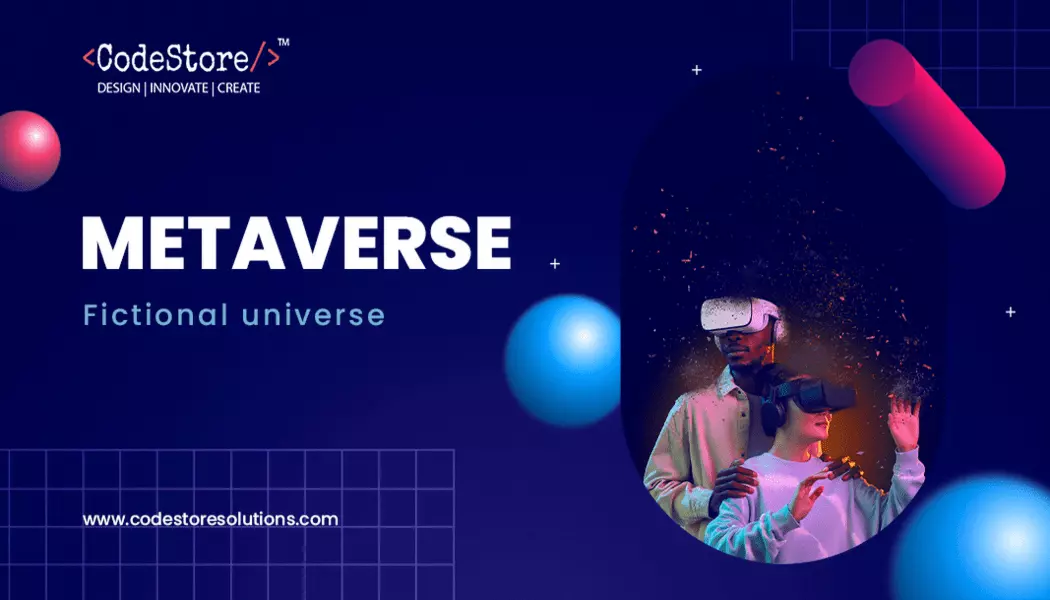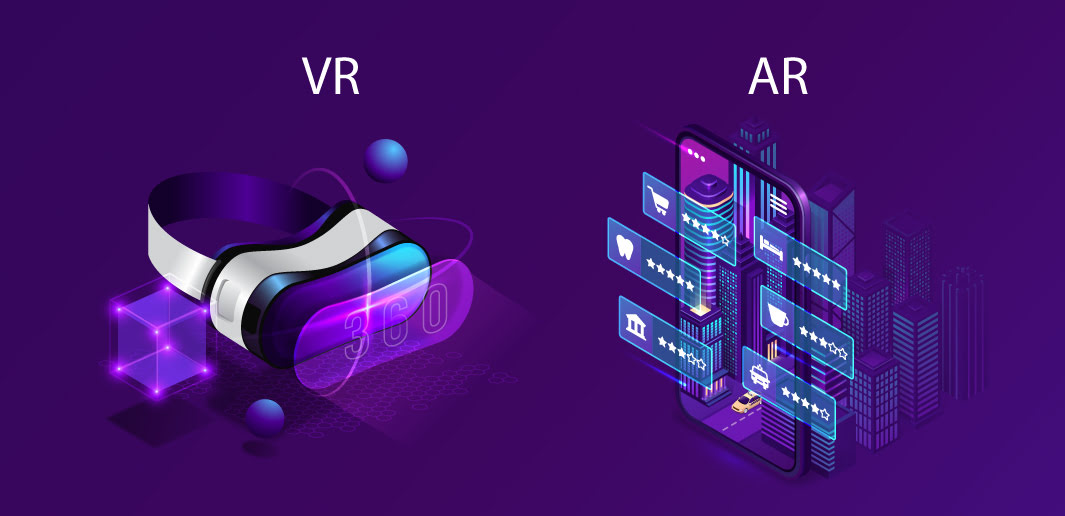Metaverse – All you need to know

Introduction
Imagine a virtual world in which people live, shop, work and socialize – all from the comfort of their sofas. Metaverse is considered the next version of the internet. It will take many forms, including games, online communities and business meetings where people interact with digital fax or their avatar.
“Metaverse” did not become a household name until Facebook changed its company name to Meta in October 2021. The company announced plans to spend $10 billion over the next few years on technology to build its vision for the metaverse.
What Is the Metaverse?
Metaverse is the next generation of internet, supporting continuous 3D online environments where publicly accessible social media experiences, real-time 3D content and other related media are connected and accessible via VR / AR, and classic devices like PC or cell phones.
Metaverse will take many forms, including games, online communities and business meetings where people interact with digital fax or their avatar. In the Metaverse, people use avatars to represent themselves, communicate with each other and virtually build out the community.
In the metaverse, digital currency is used to buy clothes — or weapons and shielding in the case of video games — and many other items. Users can also virtually travel through the metaverse for fun with no goal in mind using a virtual reality headset and controllers.
What’s the difference between VR and AR?
Augmented reality (AR): AR is a digital overlay expressed in the real world. Think of Pokemon Go, Snapchat, or items like Google Glass. Although Google Glass has never been removed, we may soon look at AR-linked glasses like Snapchat Filters.
Virtual reality (VR): VR is a deep feeling when one puts in a headset and sees, and can work within, the digital world. VR currently uses full headsets instead of mirrors, immersing the user in the 360 ° world they can navigate — as long as they do not collide with visible walls.

Extended Reality (XR): Extended Reality is a common term for VR, AR, and MR, concepts that are often overlapping. Finally, the lines between VR, AR, and MR may be blurred as the metaverse becomes more real — making XR a more appropriate term.
Metaverse companies
In an open letter, Facebook CEO Mark Zuckerberg said his company’s massive investment represented a significant change and was part of a new vision for the social media company designed to “bring the Metaverse to life”
Epic Games
Epic Games, creators of the popular online game shooting game Fortnite – with about 350 million users – and Unreal Engine game software developers, plan to sue in the metaverse following a $1 billion revenue round in 2021. This includes. $200 million from Sony Group Corp.
Microsoft
After Metaverse comes Microsoft Groups – competing for online software for Zoom forums. Microsoft has announced it will release the Microsoft Teams Mesh in 2022. The new service allows Team users from a variety of visible locations to join a shared experience and holographic sharing during visual sessions.
Why are video games linked to the metaverse?

Thanks to the emphasis on 3D reality, video games offer the most intimate metaverse experience right now. The point is not just that they are 3D, though. Video Games now offer services and features that add up to other aspects of our lives. Players are no longer just playing a game, they use it for other activities and part of their lives.
What’s the future of the metaverse?

Facebook is one of the most vocal voices in the formation of a cohesive metaverse. This is especially interesting with the crypto-powered metaverse thanks to Diem stable coin’s Facebook project. Mark Zuckerberg has made clear his plans to use the metaverse project to support long-distance work and improve financial opportunities for people in developing countries. Facebook’s ownership of communications, and crypto forums provide a good start in uniting all these worlds into one. Other major technology companies also focus on metaverse development, including Microsoft, Apple, and Google.
Speaking of the crypto-powered metaverse, further integration between NFT markets and 3D virtual universities seems to be the next step. NFT owners may already sell their wares at multiple sources in markets such as OpenSea and BakerySwap, but there is still no popular 3D platform for this. Blockchain developers may develop popular applications such as metaverse with biological users rather than the giant tech to a large extent.
How close is the metaverse?
Although the basic concept of being able to engage in the physical world has been around for many years, the real metaverse in which lifelike interactions are possible is still many years away. In his annual review of blog posts, Microsoft founder Bill Gates noted many people do not have VR glasses and motion picture gloves to capture their speech, body language, and voice quality.
But in business, Gates predicts that in the next two to three years most visual sessions will move from two square boxes to a metaverse space – a 3D space with participants appearing as digital avatars.
Closing thoughts
Although a single, cohesive metaverse may be far away, we can now see the progress that can lead to its creation. It seems to be another matter of applying sci-fi to blockchain technology and cryptocurrencies. Whether we will ever reach the metaverse point is uncertain. But in the meantime, we can already discover projects like metaverse and continue to incorporate more blockchain into our daily lives.
Also, CodeStore would love to hear from you, so if you have experience in this field, share your fruitful information and help our dedicated student community.
[number]




